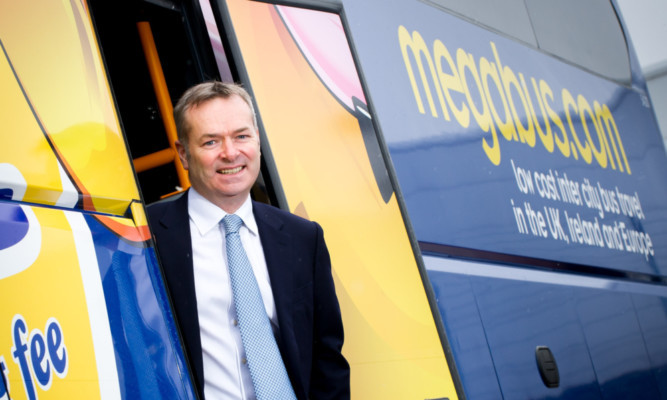Bus franchising in England would cost too much money and undermine the advantages of competition, the chief executive of Stagecoach said on Friday.
Martin Griffiths told shareholders at the group’s annual general meeting in Perth Concert Hall that bus franchising was not the answer for government and local authorities.
Fears about the implications of the move followed Chancellor George Osborne’s devolution package delivered to Manchester which gave the combined local authority the power to take over bus services, setting routes and fares.
The bus industry in the UK, with a turnover of about £6 billion, is concerned about the public sector strangling its commercial freedom and margins.
Mr Griffiths told the several hundred-strong gathering, many of whom had travelled from England, that introducing bus franchising across the whole of England could cost more than £3.2bn a year.
“It would cost the public purse more at a time when public spending is shrinking and the Chancellor has called for further cuts of perhaps up to 40%,” he said.
Calling for a full debate on the issues, he said: “It is essential that the taxpayer is protected in any legislation.”
The upcoming Buses Bill must include proper checks and balances to ensure franchising proposals meet the public interest value for money test like any other major Government initiative, he believed.
Stagecoach’s operations over the last year had shown the value of the commercial model, he argued.
Passengers had recognised it for offering the best value bus travel in the UK and it had invested a further £80 million in greener buses.
Stagecoach has come a long way from the Perth company that started with two buses 35 years ago.
Now an international transport group in two continents operating coaches, trams and trains, it has 39,000 employees and a turnover of more than £3bn.
